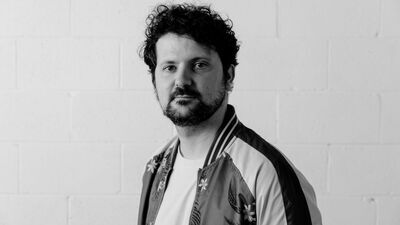As an audience member, I am obsessed with genre. I’m a comic book nerd and Alien is my favorite movie ever. I’m drawn to genre because of how it can transport you to a whole new world which is exciting and strange. But also, genre can test characters in a larger-than-life way that pushes on very human things. For me, it’s thrilling and cathartic to see characters get tested and you yourself can ask: “how would I react to this scenario?” and “what would it do to me?”
As a filmmaker, I always want to make films that have something to say. With “Monolith”, we were really interested in these ideas of truth and asking questions about who you can believe in this podcast/new media landscape. We really wanted to get into the parasocial relationships people have with podcasters and explore the fact that we trust them when we have no reason to trust them. Lucy’s script also dove into this other layer of when that trust collides with privilege and power. The Interviewer is a very wealthy character and although it takes a while before that comes into the narrative, once it does, it brings up these ideas about who gets to control a story and the power that comes with that. When the privileged control the narrative they do so in a way that reinforces the monolith of their power.

One of the other themes that struck me was its critique of the ways we’ve been forced to commodify ourselves and how sometimes it’s more important to be first than to be right. I think of that sequence where after The Interviewer posts a podcast episode, her producer Tyler says “Hit 500K listens! Network super happy. When’s the next ep?” but the audio we hear while seeing that text is one of her sources critiquing her for rearranging the audio to make statements that are out of context. Do you have hope for journalism, especially investigative journalism work, where it doesn’t have to be tied to this commodification of self?
As much as this film is about the dark side of social media or podcasting, I’m not opposed to those new media. A lot of it is great and the democratization of the voice is so important. What’s happened, as you said, is that there’s so much of it out there and the only way to be noticed is to be first and to be provocative. It is a dangerous thing but it’s also really interesting.
I’m hoping that the next generation will become very savvy with these mediums. They’re going to have to be very savvy about understanding the point of view of the media that they consume. It’s going to be vital to fact check sources and to understand sources. It’s also a funny thing where some of the best investigative journalism is happening. It’s just a minefield and I think that’s why we wanted to make a film about it and hopefully we weren’t too didactic about it.

